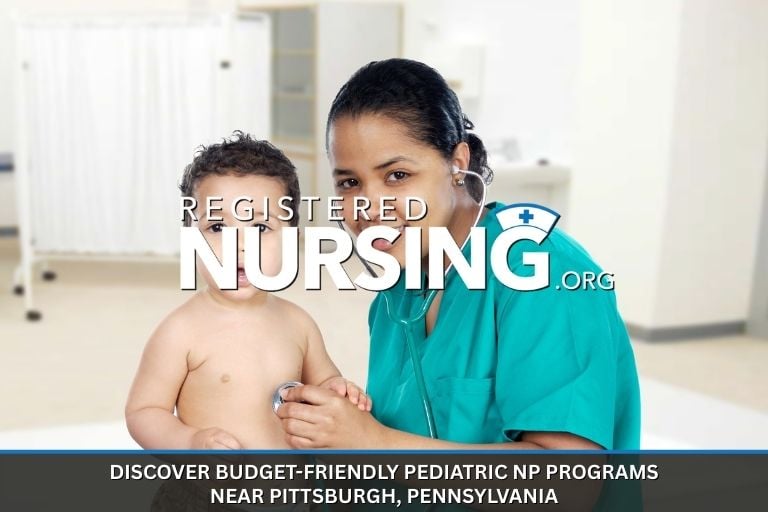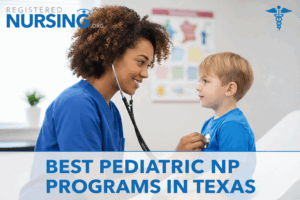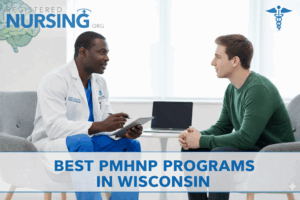Compare Budget-Friendly Pediatric Nurse Practitioner Programs Near Pittsburgh, Pennsylvania
- 2026 Budget-Friendly Pediatric NP Programs Near Pittsburgh, Pennsylvania
- The Importance of Affordability in Pediatric Nurse Education
- Program Design and Structure in Pittsburgh
- Pediatric Health Needs Across Pittsburgh
- Admission Expectations for Budget-Friendly Programs
- Flexible Learning Formats for Pittsburgh Nurses
- Financial Strategies for Affordable Education
- Career Opportunities for PNP Graduates in Pittsburgh
- Preparing Pediatric Nurse Leaders in Western Pennsylvania
- A Lasting Impact Through Affordable Pediatric Nurse Education
- Sources
- Latest Articles & Guides

Pittsburgh, Pennsylvania, has long been recognized as a regional leader in healthcare and education, making it a natural choice for advanced nursing study. With more than 300,000 children living in Allegheny County alone, the demand for specialized pediatric providers remains high. According to the U.S. Bureau of Labor Statistics, nurse practitioner roles are projected to grow by 45% nationally between 2022 and 2032, one of the fastest growing professions in healthcare. For aspiring Pediatric Nurse Practitioners (PNPs), Pittsburgh offers unique opportunities to gain clinical experience while controlling the cost of graduate education through budget-friendly program options.
Affordable pathways to advanced practice are especially important in Pittsburgh, where many nurses balance demanding clinical schedules with family responsibilities. Reducing the financial strain of graduate study allows more qualified nurses to pursue pediatric specializations, directly benefiting the region's children and families. With a blend of major hospital systems, community health organizations, and pediatric specialty clinics, the city provides a dynamic training environment that matches the needs of its growing pediatric population.
2026 Budget-Friendly Pediatric NP Programs Near Pittsburgh, Pennsylvania
University of Pittsburgh-Pittsburgh
Pittsburgh, PA - Public 4-Year - pitt.edu
Graduate Certificate - Pediatric Acute Care Nurse Practitioner Certificate (Pediatric Acute Care)
Campus Based - Visit Website
The University of Pittsburgh's Pediatric Acute Care Nurse Practitioner Certificate offers an affordable, specialized non-degree program for experienced nurses seeking advanced pediatric acute care training. Tailored for MSN or DNP-prepared professionals, this program provides comprehensive skills in managing critically ill children from birth through emerging adulthood. With a minimum of 500 clinical hours and full-time or part-time options, students can enhance their expertise cost-effectively. The program's affordability stems from its streamlined 18-21 credit hour structure, targeted curriculum, and potential for national certification. Military-friendly status and flexible scheduling make this certificate an attractive, budget-conscious option for nurses pursuing pediatric acute care specialization.
- Non-degree post-graduate certificate
- Minimum 500 clinical hours
- For MSN/DNP-prepared nurses
- National certification eligible
- Onsite clinical placements provided
- GPA requirement 3.0
- 18-21 total credit hours
- Full-time or part-time options
- Pediatric acute care focus
MSN to DNP - BSN to DNP Pediatric Primary Care Nurse Practitioner (Pediatric Primary Care)
Campus Based - Visit Website
The University of Pittsburgh's BSN to DNP Pediatric Primary Care Nurse Practitioner program presents an economical doctoral pathway for nurses committed to comprehensive pediatric healthcare. This program's cost-effectiveness is enhanced by its integrated BSN to DNP track, eliminating separate master's degree expenses. Students receive advanced clinical training focused on pediatric primary care, developing skills in evidence-based practice and leadership. The program's emphasis on holistic child healthcare from infancy through adolescence prepares graduates for diverse pediatric settings. With military-friendly policies and a robust curriculum, this doctoral program offers significant value for nurses seeking specialized pediatric primary care expertise at a competitive price point.
- Doctoral-level pediatric nursing
- Advanced clinical practice focus
- Comprehensive pediatric healthcare training
- Evidence-based practice emphasis
- Leadership in pediatric care
The Importance of Affordability in Pediatric Nurse Education
Affordability is a significant factor influencing enrollment in graduate nursing programs. In Pittsburgh, where cost of living is moderate compared to other large cities, nurses still face financial challenges when committing to years of advanced study. Budget conscious nurse practitioner programs in Pennsylvania provide opportunities for local nurses to remain in the workforce while advancing their education, limiting debt and broadening access to high quality pediatric care. By making education more financially accessible, these programs support the city's larger healthcare mission of ensuring every child has access to comprehensive and specialized care.
How Affordable Options Support Pittsburgh's Workforce
- Reduced Debt Load: Graduates begin practice with manageable student loan balances, enabling them to work in community or nonprofit pediatric settings.
- Improved Retention: Nurses who train locally and affordably are more likely to remain in Pittsburgh's healthcare workforce.
- Expanded Access: Budget-friendly pathways allow a wider range of nurses, including those from diverse backgrounds, to pursue pediatric specialization.
Program Design and Structure in Pittsburgh
The structure of pediatric nurse practitioner programs in Pittsburgh reflects both national standards and local needs. Programs are carefully designed to balance rigorous academic content with practical clinical training, all while keeping costs within reach.
Common Elements of Affordable PNP Curricula
The following core areas illustrate what students can expect from Pittsburgh's budget-friendly PNP tracks:
- Advanced Core Courses: Training in pharmacology, pathophysiology, and health assessment builds essential knowledge for advanced practice.
- Pediatric Specialty Coursework: Focused study in child development, acute and chronic illness management, and family-centered care.
- Clinical Experiences: Placements across Pittsburgh's hospitals, outpatient pediatric practices, school-based clinics, and rural health facilities.
- Capstone or Scholarly Project: Final projects often address regional issues such as childhood asthma, immunization outreach, or adolescent mental health.
| Program Component | Pittsburgh-Specific Feature |
| Core Courses | Integration with Pennsylvania health policy |
| Pediatric Specialty Training | Emphasis on urban and rural child health |
| Clinical Rotations | Hospitals, school health programs, rural clinics |
| Capstone Project | Solutions for local pediatric health concerns |
Pediatric Health Needs Across Pittsburgh
Understanding the health challenges faced by Pittsburgh's children underscores the value of PNP education. The city has made significant progress in addressing pediatric health, but disparities persist.
Key Regional Pediatric Health Trends
- Childhood Asthma: Higher than average rates in urban neighborhoods, requiring advanced management strategies (CDC Asthma Data).
- Obesity and Nutrition: Initiatives across schools and communities emphasize prevention and early intervention, supported by programs from the Pennsylvania Department of Health.
- Behavioral Health: Rising demand for providers trained in pediatric mental health and counseling is highlighted in reports by the American Association of Nurse Practitioners.
- Chronic Illness: Care for children with diabetes and congenital conditions requires highly trained pediatric specialists.
These realities mean that PNP graduates are entering a workforce where their skills are immediately applicable and deeply needed.
Admission Expectations for Budget-Friendly Programs
Admission into pediatric nurse practitioner programs in Pittsburgh requires evidence of both academic preparation and clinical readiness. While requirements may vary, most affordable programs follow a standard set of expectations.
Typical Admission Requirements
The following are commonly requested by Pittsburgh programs:
- A Bachelor of Science in Nursing degree from an accredited institution
- An active Pennsylvania RN license in good standing
- A minimum cumulative GPA of 3.0 or higher
- Relevant nursing experience, ideally in pediatric or family-focused settings
- Professional references and a personal statement outlining career goals
These criteria ensure that students enter programs with a strong foundation, ready to succeed in advanced coursework and clinical training.
Flexible Learning Formats for Pittsburgh Nurses
Many nurses in Pittsburgh continue working while pursuing graduate degrees, making flexible program delivery essential. Affordable programs often utilize hybrid models, combining online learning with in-person requirements.
On-Campus and Hybrid Models
- Hybrid Programs: Students complete the majority of coursework online, traveling to Pittsburgh periodically for clinical intensives or seminars.
- On-Campus Programs: These provide more direct contact with faculty and peers, as well as access to city resources and clinical networks.
Both options are designed to make graduate education more accessible while accommodating the work and family responsibilities of practicing nurses in Western Pennsylvania.
Financial Strategies for Affordable Education
Even in budget-conscious programs, additional financial support is often needed to manage costs. Pittsburgh nurses have access to several resources that can offset tuition and fees.
Common Financial Support Options
- Federal and State Loan Repayment Programs: Incentives for nurses who serve in underserved communities, including those administered through the Health Resources and Services Administration.
- Scholarships and Grants: Opportunities through nursing associations and child health foundations such as the American Association of Colleges of Nursing.
- Employer Tuition Assistance: Local healthcare organizations frequently provide financial assistance for employees pursuing advanced credentials.
- Part-Time Enrollment: Allows nurses to extend program length and distribute tuition costs over time.
These strategies help ensure that nurses can focus on education without being overburdened by financial stress.
Career Opportunities for PNP Graduates in Pittsburgh
The career outlook for pediatric nurse practitioners in Pittsburgh is robust, reflecting both the size of the pediatric population and the diversity of healthcare systems across the city. Graduates can apply their skills in a wide range of clinical and community settings.
Examples of Local Career Paths
- Children's Hospitals and Specialty Clinics: Managing acute and chronic pediatric conditions.
- Community Health Centers: Providing care to underserved children in urban neighborhoods.
- School Health Programs: Supporting student wellness through primary care, prevention, and health promotion.
- Private Pediatric Practices: Offering continuity of care for families throughout childhood and adolescence.
In addition to direct clinical care, PNPs in Pittsburgh often contribute to public health initiatives, such as vaccination drives and health education campaigns targeting youth and families.
Preparing Pediatric Nurse Leaders in Western Pennsylvania
Budget-friendly PNP programs in Pittsburgh do more than prepare students for certification exams; they cultivate future leaders in child health. Graduates are trained to think critically about community health needs, apply evidence-based practices, and advocate for equitable care. These qualities are essential in a city that serves both local neighborhoods and surrounding rural communities.
Leadership Competencies Developed
- Implementing pediatric-focused quality improvement projects
- Leading multidisciplinary healthcare teams
- Advocating for child health policy at the local and state levels
- Mentoring new nurses in pediatric care environments
A Lasting Impact Through Affordable Pediatric Nurse Education
Choosing a budget-friendly pediatric nurse practitioner program in Pittsburgh is both a practical and visionary decision. The affordability of these pathways ensures that more nurses can step into advanced roles, directly impacting the health and well-being of children across the city and beyond. With its combination of accessible education, diverse clinical training opportunities, and strong local demand, Pittsburgh is uniquely positioned to shape the next generation of pediatric nurse leaders.
Graduates of these programs leave prepared not only to provide expert care but also to guide community health initiatives that will benefit families for years to come. In making advanced pediatric education financially sustainable, Pittsburgh nursing programs strengthen the healthcare workforce while improving outcomes for its youngest residents.
Sources
- U.S. Bureau of Labor Statistics: Nurse Practitioners
- Centers for Disease Control and Prevention: Asthma Data
- Pennsylvania Department of Health
- American Association of Nurse Practitioners
- Health Resources and Services Administration: Nurse Loan Repayment
- American Association of Colleges of Nursing
Latest Articles & Guides
One of the keys to success as a registered nurse is embracing lifelong learning. Our articles and guides address hot topics and current events in nursing, from education to career mobility and beyond. No matter where you are on your nursing journey, there’s an article to help you build your knowledge base.
Browse our latest articles, curated specifically for modern nurses.



